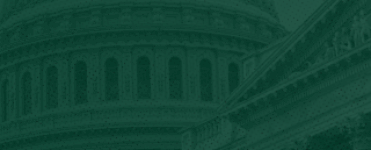
AFP Confronts Outdated Cosmetology Regulations That Stifle Residents of the Sunflower State
Imagine paying $20,000 for a year of training to become licensed in your trade but never being taught the skills to provide the service. That was the situation for sugarists in Kansas who provide hair removal services.
To learn the craft of sugaring — a technique that uses sugar, water, and lemon juice to remove hair from the root — one must complete over 1,000 hours of training just for the license that fails to teach the skill and then pay for a separate training to learn how to administer the technique all before ever collecting a paycheck. The lengthy, onerous and expensive process stopped many aspiring sugarists from ever pursuing a career in the field.
Americans for Prosperity (AFP) recognized the decades-old regulations were stifling the modern economy and pioneered legislation that exempts sugaring from requiring a full cosmetology license in Kansas. Building on this momentum, AFP launched their Beauty Not Barriers campaign to dismantle the excessive red tape hindering small businesses in the cosmetology industry.
Kansas Regulations Make the Sugaring Industry Uncompetitive
Aspiring sugarists in Kansas spend 10x the amount of time securing the license required to use a mixture of sugar, water, and lemon juice than EMTs spend obtaining a license to provide life-saving care.
The onerous training requirements for sugaring means very few have the resources to go to cosmetology school and enter the industry. Eventually, even those who are successful and want to grow their business often face a hiring crisis with such a small pool of qualified sugarists available. Due to the Kansas Board of Cosmetology (KSBOC) regulations, the sugaring sector of the cosmetology industry is underdeveloped, and local economies miss out on the economic growth generated by sugaring salons.
The impact is especially felt in rural areas where flexible and home-based services like sugaring are vital for economic opportunity. Bryn Green, a mother and practicing sugarist, knows the struggle first-hand. Childcare is sparse in rural Kansas and Bryn relies on her ability to work from home to accommodate her challenging schedule. However, the same outdated regulations stop her and many others from being able to do so, despite serving no public safety purpose.
The Kansas Justice Institute (KJI) had been representing Bryn’s case and teamed up with AFP to find a permanent solution that removes the barriers killing off the sugaring industry.
AFP Champions Beauty Not Barriers
Having previously eased regulations around licensing for hair braiders and eyebrow threaders, AFP was a natural champion for Kansas sugarists.
Their team partnered with KJI and their counterpart, the Kansas Policy Institute (KPI), to construct a law exempting sugarists from a full license. They identified aligned lawmakers who had a record of tearing down barriers that squash economic opportunity to sponsor the bill. Once the legislation was introduced, the coalition provided testimony, sharing the personal stories of entrepreneurs like Bryn who couldn’t achieve her dreams because of burdensome government regulations.
“It’s time to trust the judgement of those working and starting businesses in the beauty industry instead of assuming an aloof government agency has all the answers. Because they don’t,” emphasizes AFP-KS State Director Elizabeth Patton.
Even though the legislation passed both chambers with strong bipartisan support, Governor Laura Kelly vetoed the bill citing safety and sanitation concerns, despite the addition of provisions to keep customers informed and maintain high sanitation standards.
Undeterred, AFP launched their Beauty Not Barriers campaign in 2024, setting the stage for full reform of the KSBOC and its licensing requirements during the 2025 legislative session. These efforts build on AFP’s national success when it comes to slashing similar barriers in occupational licensing in other states such as Iowa, making it easier for individuals to earn a living without government interference.
Collaborate with AFP today to slash red tape that stunts local economies!



